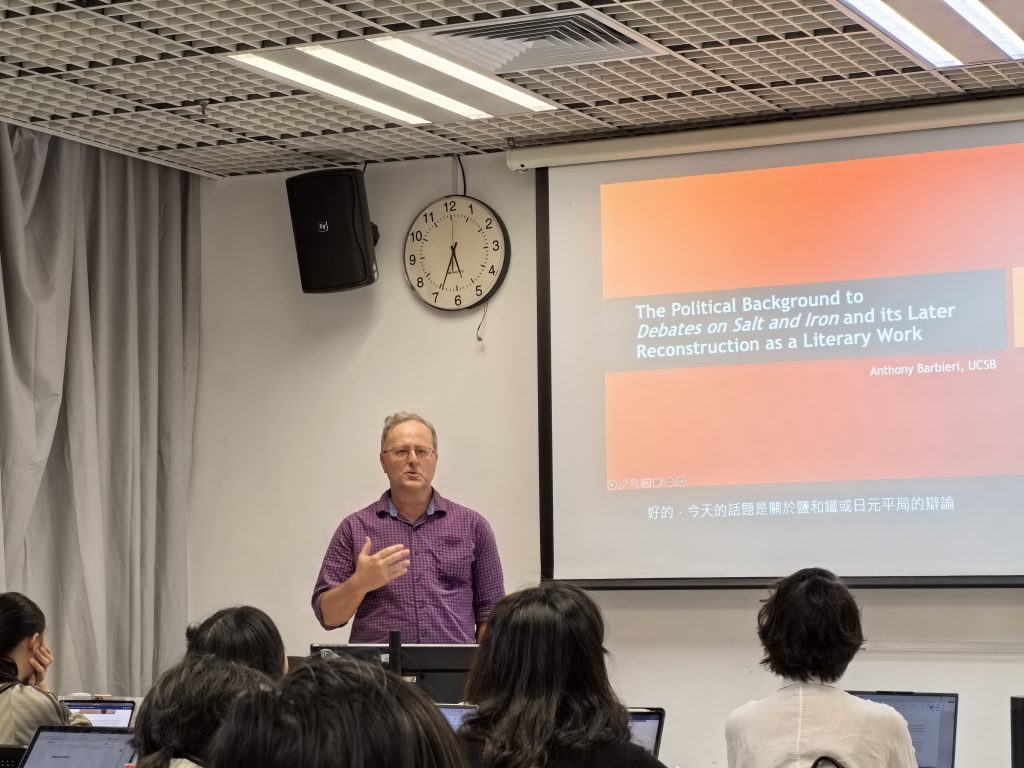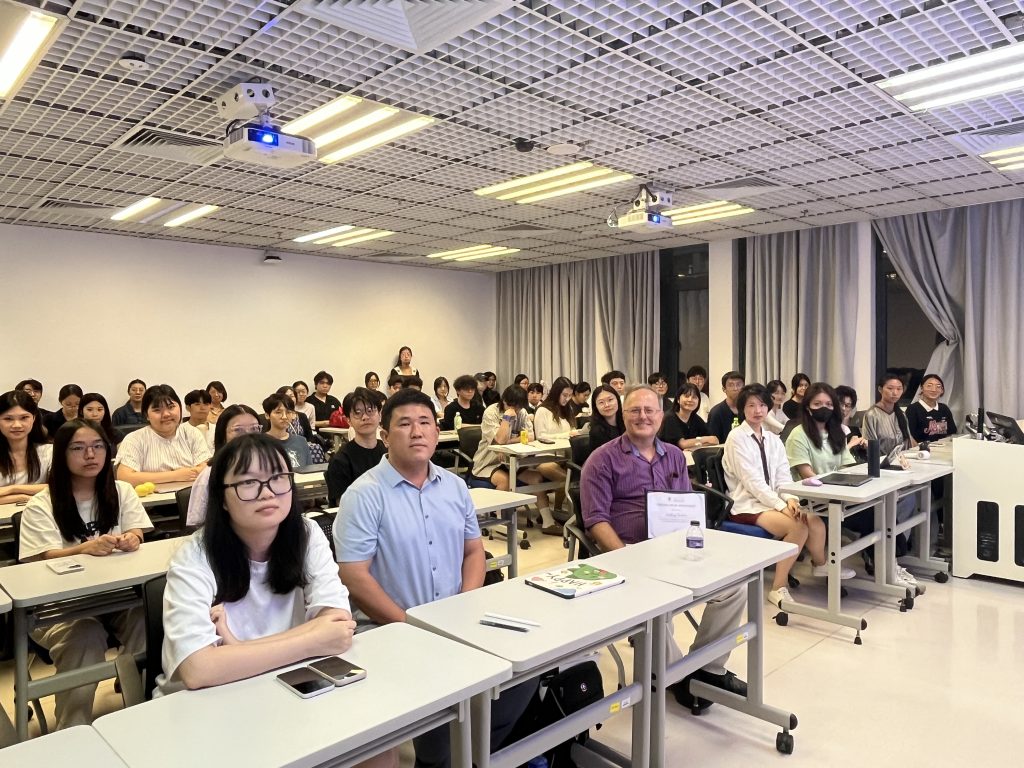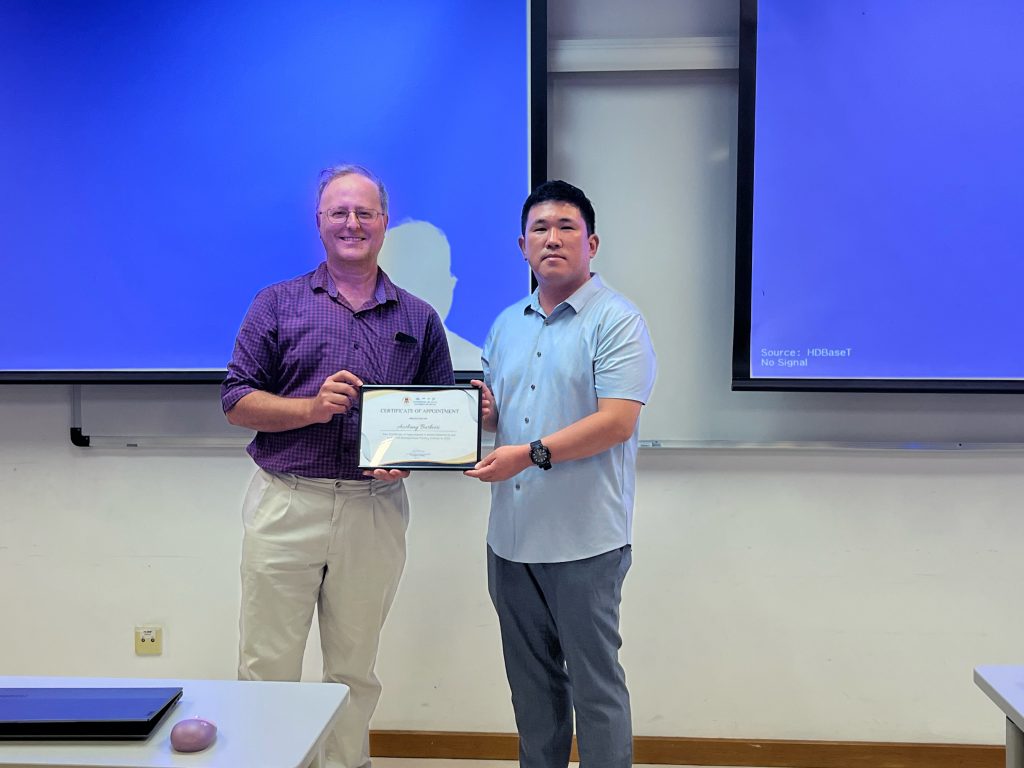On September 15, 2025, the Department of Chinese Language and Literature, Faculty of Arts and Humanities, University of Macau, hosted an academic lecture entitled “The Political Background to the Debates on Salt and Iron and its Later Reconstruction as a Literary Work.” The guest speaker was Professor Anthony Barbieri from the University of California at Santa Barbara. The lecture was chaired by Professor Yue Zhang of the Department of Chinese Language and Literature, and attended by numerous faculty members and students, including Professor Xiaorong Li from the University of California at Santa Barbara, Professor Minhui Xu from the Department of English at University of Macau, and Professor Sihao Wang from the Department of Chinese Language and Literature.

Prof. Anthony Barbieri was trained at Harvard (M.A., 1997) in East Asian Studies and Princeton (Ph.D. 2001) in Chinese Art and Archaeology. He has wide-ranging interests in many aspects of Early China, including technology, organization of production, labor history, gender and social relations, legal process, visual and material culture, and state formation. He also conducts research in Egyptology as a comparative field with early China. Among his many outstanding publications, here are some selected ones: The Many Lives of the First Emperor of China (University of Washington Press, 2022), Ancient Egypt and Early China: State, Society, and Culture ( University of Washington Press, 2021), Law, State, and Society in Early Imperial China (Leiden: Brill, 2015), Artisans in Early Imperial China (Seattle: University of Washington Press, 2007), and Recarving China’s Past: Art, Architecture, and Archaeology of the “Wu Family Shrines” (New Haven: Yale University Press, 2005).
The Debates on Salt and Iron (鹽鐵論) presents itself as a faithful account of an imperial court conference held in 81 BCE, centered on the question of abolishing the state monopolies on salt and iron. However, this sixty-chapter work, attributed to Huan Kuan 桓寬, is primarily a literary reconstruction, not a verbatim transcript. Huan compiled it from official memorials, examination responses, cross-examination transcripts, along with his own literary embellishments, including whole added compositions. Huan also streamlined the original sixty participants into composite literary characters, which he called the “Literary Scholars” and the “Worthies.” The text thus provides a highly curated discussion of Han political economy.

An examination of the political background to these events reveals these debates to be a calculated “political assassination” initiated by the regent leader of the Inner Court, Huo Guang 霍光, against his elder rival, Sang Hongyang 桑弘羊, the leader of the Outer Court and the man most closely associated with Emperor Wu’s activist fiscal policies, including the monopolies. Though framed as a sincere discussion of economic and social issues like poverty and imperial expansion, the debate was just an opportunity to defame Sang Hongyang and drive him to revolt, which he did the following year.

The event was conducted in a lively atmosphere and stimulated active discussion. Professor Barbieri responded to the audience’s questions with patience and rigor. At the conclusion of the lecture, Professor Yue Zhang presented Professor Barbieri with a certificate recognizing him as a “Distinguished Visiting Scholar of the University of Macau.” The lecture was met with enthusiastic reception and concluded in a cordial spirit of academic exchange.

